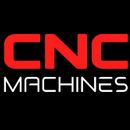The Rise of Urban Manufacturing: Producing Locally in a Global Economy

The Rise of Urban Manufacturing: Producing Locally in a Global Economy
Urban manufacturing is redefining the production landscape by bringing manufacturing processes closer to consumers. Leveraging advanced technologies such as 3D printing and light industrial CNC machines, urban manufacturing enables efficient, localized production that caters to the specific needs of communities.
Embracing Local Resources and Advanced Technologies
The integration of digital fabrication tools has made it feasible for small-scale manufacturers to operate within urban settings. Technologies like 3D printers and CNC machines allow for the creation of complex parts and prototypes without the need for large-scale industrial facilities. This shift not only optimizes space utilization but also fosters innovation and customization in product development.
Benefits of Urban Manufacturing
1. Reduced Supply Chain Dependencies
By producing goods locally, urban manufacturing minimizes reliance on extensive supply chains, leading to faster turnaround times and reduced transportation costs.
2. Environmental Sustainability
Localized production reduces carbon emissions associated with long-distance shipping and promotes the use of sustainable materials, contributing to a greener economy.
3. Economic Growth and Job Creation
Establishing manufacturing units within cities stimulates local economies by creating jobs and encouraging entrepreneurship.
Real-World Applications and Examples
- Newlab in Brooklyn, NY: A hub for hardware-focused startups, Newlab provides access to advanced manufacturing tools, fostering innovation in urban manufacturing.
- Field Ready: This organization utilizes 3D printing to produce essential items in disaster-stricken areas, demonstrating the potential of localized manufacturing in crisis response.
Future Outlook
As urban populations continue to grow, the demand for localized, efficient, and sustainable manufacturing solutions will increase. Urban manufacturing, supported by advancements in digital fabrication technologies, is poised to play a crucial role in meeting this demand, reshaping the way products are designed, produced, and consumed.
Urban manufacturing represents a paradigm shift towards more resilient and responsive production systems. By harnessing local resources and cutting-edge technologies, cities can become self-sufficient hubs of innovation and production, aligning economic growth with environmental sustainability.


